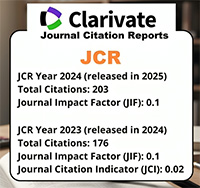Cardiovascular excitatory effect on rats of a fraction isolated from the eyestalk of shrimp: Peneaus vanameii.
Resumen
The crustacean nervous system is an important source of substances with diverse biological activities, particularly affecting invertebrate cardiocirculatory physiology. However, the effects of these substances on the cardiovascular system of higher vertebrates are not very well documented. The purpose of this study was to evaluate the effects of a cardioexcitatory substance (CES) isolated from the eyestalk of the shrimp Peneaus vanameii on rat cardiovascular function. The administration of a purified fraction of this substance raised mean arterial pressure by 37.33 Ó 5.00 mm Hg, pulse pressure 35.00 Ó 4.93 mm Hg and heart rate 80.00 Ó 12.83 beats/min over basal values (p < 0.01). Evaluation of the possible underlying mechanisms of this hypertensive and tachycardic effect reveled that dihydroergotamine pretreatment (20 μg/0.2 mL) reduced the effect of CES on mean blood pressure, but not on heart rate. Propranolol pretreatment (4 μg/0.2 mL) reduced the tachycardia, but not the hypertensive response. Enalapril pretreatment (5 μg/0.2 mL) did not modify the effects induced by CES on heart rate or blood pressure, and the verapamil pretreatment (1 μg/0.2 mL) reduced both cardiovascular changes by 85% (p < 0.01). These results indicate that CES isolated from the shrimp eyestalk produces hypertension and tachycardia mediated by adrenergic receptors in association to calcium channels activation.




















